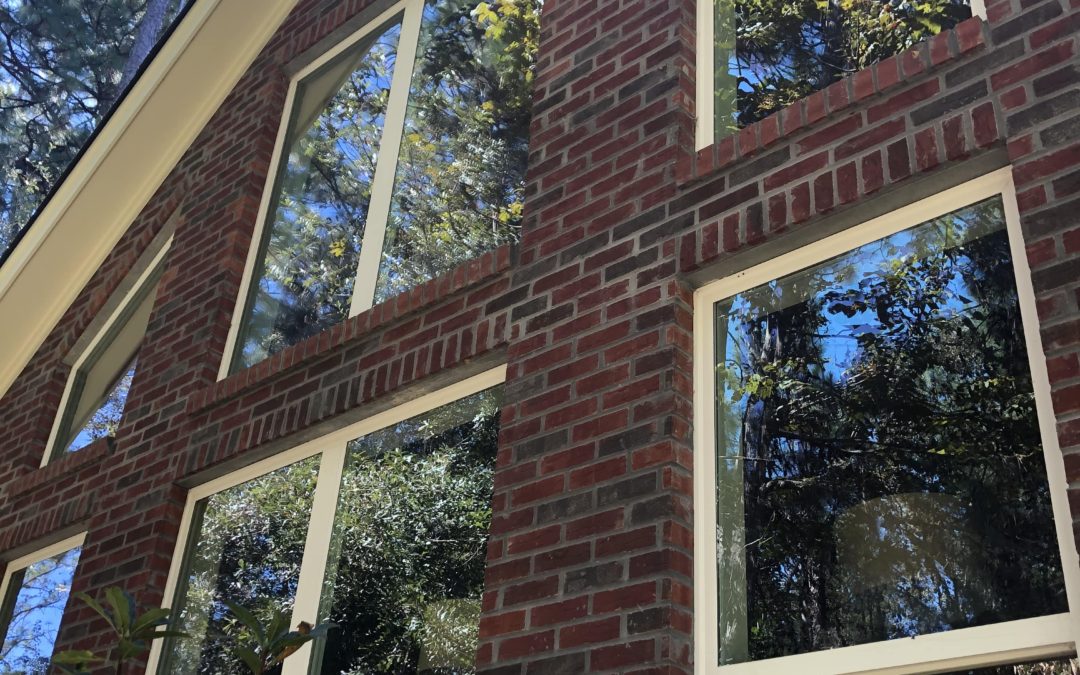Maggie’s remission from cancer may have been one of the shortest on record. After nearly two years of surgery, chemo and radiation, chemo alone, surgery, and more chemo, she was said to have reached NED status: no evidence of disease. We rang the bell on the second anniversary of her diagnosis on April 7, 2016. But a phone call after her first three-month scan in May shattered that. The lung nodules were growing and glowing again.
I called that moment – and its many twins throughout her journey – gut punch time. I had allowed myself to hope only to feel the collision with reality right in my mid-section. What is worse? To allow hope to rise for inevitable disappointment or never experience it getting off the ground?
I’m entertaining these lingering questions when a brown thrasher slams into the picture window in our den. She is the largest bird to do so but not the first. Cardinals make a habit of it and are never the wiser or seriously damaged. But not the thrasher. Her collision seems to shake the house and something more vital. I know how you feel, my winged friend. The times of unexpected, deep disappointment in our progress toward a goal of healing felt like body slams that jarred my soul. Experts tell us birds fly into windows because their eyesight – crafted to allow a wider field of vision – is not acute enough to distinguish the reflection of nature on the glass from the hard surface of reality. They collide full force into an illusion.
Maggie felt the window slams, too, I know. I could read her when the expected good report didn’t come, or the phone call did. I wondered how she would handle this latest disappointment. She had been soaring in the clouds through those brief weeks of freedom, making plans for a future without pain, IV poles, and hospitals with a return to normal life. What would this do to her faith? What was it doing to mine?
We re-entered the world of cancer treatment with the hope – there’s that word again – of eliminating lung tumors or reducing their size and number enough to make her a candidate for surgery. This latest illusion lasted three months until the next routine scan, taken of the chest area, revealed something active on the liver. Gut punch again. A full body CT scan was ordered to confirm what was not clearly in focus. On the morning of our appointment, Phil had this exchange with Maggie.
Phil: I’m praying for clear scans today.
Maggie: I’m not. I’m not praying for anything in particular.
Phil: Why not?
Maggie: I’ve been disappointed in the past, and I don’t want to have a wrong expectation of God.
Holding hope is as much about managing our expectations of what the Lord will do as it is focusing on Him. While our mind is screaming loud what we know He can and think He should do, we can’t focus. Our vision is divided between what is behind us, what may be approaching from the side and what we think is before us. A flimsy kind of hope offers only temporary escape from reality. Can I find a lasting one? The pages of my Bible are worn from the search. Learning to grasp what is not seen takes practice. Biblical hope is an anchor (Hebrews 6:19), and anchors don’t float. Or, if they do, they shatter the strongest illusion. Real hope can’t disappoint (Romans 5:5) because it is certain of its source.
You know the story. Days got somewhat better for us, then worse. 2017 followed 2016 with more setbacks in store. A complication from a procedure nearly killed Maggie when a tumor formed a chokehold on the bile duct. Another tumor infiltrated her sternum. We were losing ground to cancer. Were we losing hope?
During that time, I found an index card propped on Maggie’s nightstand with this reminder: “The Lord is my portion,” says my soul, “therefore I will hope in him.” The Lord is good to those who wait for him, to the soul who seeks him. It is good that one should wait quietly for the salvation of the Lord. (Lamentations 3:24-26). We must lose our desire for the illusion in front before we can move to reality just out of sight.

Image by Bernell MacDonald from Pixabay
The thrasher’s impact stirs us to action, and we rush outside for a rescue. We want to put her out of reach from neighborhood cats until she recovers her senses and returns to the air. Phil lifts her with a towel, and we look for an injury that might be fixable. A broken neck is not, and our little friend dies in mere minutes. As the last clod of dirt hits her grave, I realize how often we bury the very thing that leads us to real hope.
I know more phones will ring. Birds will die. Dreams will dissolve. Hearts will break. But in the ringing, dying, dissolving, and breaking, something stronger will not only survive despite but grow because of the intrusion of reality. Romans 5:3-4 assures us this hope, the lasting kind that never conceals a gut punch, is the final gift in a chain that also brings endurance to find it and character to cherish it. This hope, stripped of any clinging illusion, will lift and carry us Home.

Thank you, Melissa, for reminding us all that we have a hope in Jesus that can never be shattered. As Romans 8:38-39, nothing can separate us from the love of God and our eternity with Him! Can’t wait to see Maggie there!❤️❤️❤️
I can’t either! Thank you for reading and encouraging me and other readers with your words.
Melissa, thank you so much for sharing. Your words have always been a blessing to me (hugs)🤗
Your steady encouragement is a blessing to me. Thank you!
Thanks for the writing, it comes to me at an important time.
That is one big thing I love about writing – that God promises to use it to comfort others.